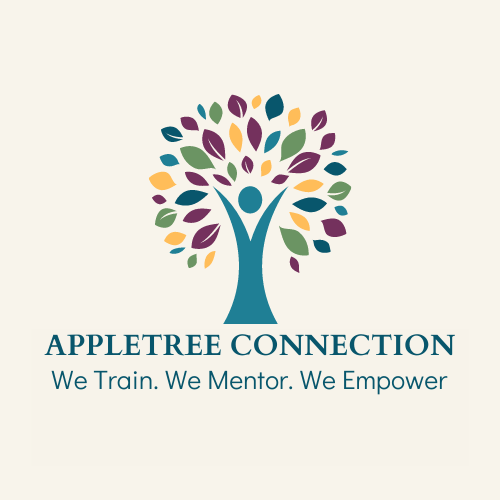
Is ABA part of psychology?
Sep 19
/
Tara Zeller, MS, BCBA, IBA
In order to answer the question of whether Applied Behavior Analysis (ABA) is a part of psychology, let's first delve into what ABA is. ABA encompasses interventions rooted in behavior analysis, a natural science aimed at comprehending the behavior of organisms. Its foundations trace back to B.F. Skinner, known for pioneering behavior analysis and radical behaviorism. Skinner's work was influenced by psychological giants such as Ivan Pavlov, John B. Watson, and Edward Thorndike. Often referred to as the Father of Operant Conditioning, Skinner laid the groundwork for Behavior Analysis and Applied Behavior Analysis (ABA).
… now back to the original question - Is ABA a part of psychology?
The Psychological Perspective on ABA
The American Psychological Association (APA) plays a pivotal role in determining ABA's place within psychology. According to the APA:
“The principles of applied behavior analysis (also known as behavior modification and learning theory), developed and researched by psychology and competently applied in the treatment of various disorders based on that research, is clearly within the scope of the discipline of psychology and is an integral part of the discipline of psychology”
“The American Psychological Association (APA) affirms that the practice and supervision of applied behavior analysis are well-grounded in psychological science and evidence-based practice.”
“APA also affirms that applied behavior analysis represents the applied form of behavior analysis which is included in the definition of the “Practice of Psychology” section of the APA Model Act for State Licensure of Psychologists.”
(Source: https://www.apa.org/about/policy/applied-behavior-analysis)
APA Model Act for State Licensure of Psychologists, section 3 excerpt:
“Practice of psychology” is defined as the observation, description, evaluation, interpretation, and modification of human behavior by the application of psychological principles, methods, and procedures, for the purposes of (a) preventing, eliminating, evaluating, assessing, or predicting symptomatic, maladaptive, or undesired behavior; (b) evaluating, assessing, and/or facilitating the enhancement of individual, group, and/or organizational effectiveness – including personal effectiveness, adaptive behavior, interpersonal relationships, work and life adjustment, health, and individual, group, and/or organizational performance, or (c) assisting in legal decision-making.” (Source: https://www.apa.org/about/policy/model-act-2010.pdf)
So, in clear terms, yes, ABA is a part of psychology. But why is this significant for psychology undergraduates? They face choices: pursue a doctorate degree and earn the title of licensed psychologist or find relevant work in the field without a doctorate. Gaining hands-on experience along the way is the key to making the right decision.
The most promising avenue for psychology undergraduates to gain relevant work experience with a bachelor's degree is through Applied Behavior Analysis (ABA). As early as age 18 and armed with a high school diploma, you can become a board-certified Registered Behavior Technician (RBT). RBTs play a pivotal role in helping clients achieve socially significant behavior changes, acquiring a transferable skillset, and embarking on a career path driven by their passion.
Pursuing RBT leads psychology undergraduates to meaningful work.
Our team at AppleTree Connection has seen over 550 students make meaningful decisions about their next steps. We specialize in Training, Mentoring, and Empowering practitioners of all levels to follow their passion in the helping professions. Our graduates have become certified RBTs, determined their graduate school focus, and taken their newfound skillsets and mindsets to diverse and rewarding roles. Indecision turned into decision when they chose to take the necessary steps. Whichever path you decide to follow, we hope you lead with compassion!
Author: Tara Zeller, MS, BCBA ~ CEO, AppleTree Connection
Empty space, drag to resize
When you are ready, AppleTree Connection can help you get to work quickly:
1. Empowered RBT TM Self-paced Training: Complete in as little as 5 days. This course satisfies the 40-hour requirement to become a RBT and International Behavior Technician*. Graduates gain access to our Exclusive Employer Partner database. Join a career with over 120k people making a difference and leading with compassion. (*Once you are certified as a Registered Behavior Technician, you can apply for the IBT addition via the IBAO).
2. RBT Competency Assessment: We offer live Competency Assessment cohorts throughout the year. You are assigned a BCBA mentor and a pathway to employment. Gain confidence and access to our Exclusive Employer Partner database. Free bonus: RBT Board Exam review course.
3. Bridging the Gap to a Career in Psychology: Check out this FREE course to help inform your decision.
4. Empowered Practitioner: Subscribe to our newsletter and join thousands of other practitioners who gain helpful tips and insights monthly, as you navigate your career in behavioral science.
Follow our socials to for upcoming events. In here We Train, We Mentor, We Empower!
Follow Us On Social Media
©2025 The AppleTree Connection All Rights Reserved
